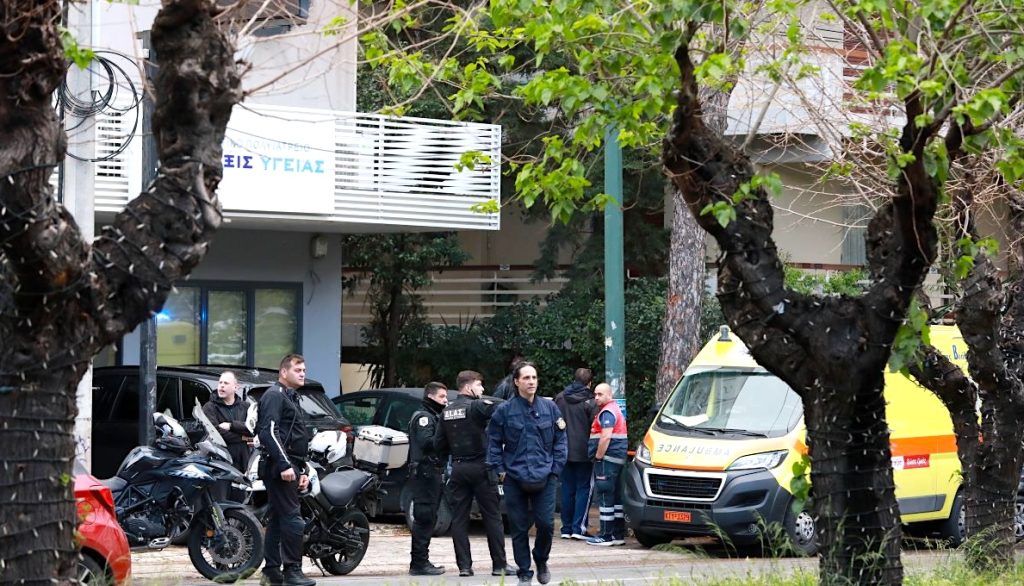A draft of the European Commission’s annual Rule of Law Report for individual member-states includes, as far as Greece is concerned, remarks on the operation of the judiciary and independent authorities, as well as questions over guarantees on the freedom of the press and an investigation into an explosive wiretapping case in the country.
The draft report was seen by in.gr. The full report is expected to be released this week, according to reports.
As with previous such reports, the draft has been conveyed to Greek authorities in order to include their answers and observations to remarks in the final copy. What’s also noteworthy is the fact that this year’s report has been delayed by roughly a month, generating negative attention for re-elected EU Commission President Ursula von der Leyen. One high-profile report, by Politico, claims that von der Leyen used the report as a lever to garner support for her re-election by EU leaders. Politico claims the Italian Prime Minister Giorgia Meloni was promised “watered down” criticism over guarantees for freedom of the press in Italy in exchange for her support towards von der Leyen’s election.
In terms of Greece, the draft report uses a more diplomatic and less critical tone in describing issues affecting rule of law, while at the same time citing efforts at institutional upgrades. Nevertheless, the draft report also includes, according to in.gr, certain decidedly negative points.
Lack of participation by jurists in the selection of the justice system’s leadership
The first field reviewed in the European Commission’s draft report for Greece focuses on the judicial system. European observers noted the continued lack of a new framework for the participation jurists in the selection of the justice system’s leadership, so that such decisions are not dependent on the government. The draft report also cites what it describes as the modest to low level of trust by Greek citizens in the judiciary’s independence. The latter result is based on a study showing a 40% figure among respondents.
The report also chronicles, without commenting, the strong reaction on the part of an association of Greek judges vis-a-vis a negative European Parliament resolution on rule of law in Greece, including only the response by the Athens Bar Association, namely, that “justice cannot be above criticism”. Additionally, the draft report cites the reactions to an investigative report by the European Prosecutor, in the wake of the deadly Tempi train collision, on the issue of a remote rail management system that should have been made operational by the Hellenic Railways Organization (OSE). The report by the EU Prosecutor cited political figures as suspects and the fact that the report on the rail management system generated criticism of a law in Greece regarding the legal responsibility of ministers. The report also refers to the fact that a list of ECHR decisions not implemented by Greece is growing instead of shrinking.
Problems with the operation of independent authorities
Negative remarks are also included over the operation of the independent authorities in Greece. Indicatively, the draft report first notes that such entities suffer from a staff shortage. The report positively cites the institution of the Ombudsman and the fact that this office announced an independent investigation into the Pylos shipwreck, while citing support by the Council of Europe in the latter’s work. However, the report also refers to the problems aired by the Hellenic Authority for Communication Security (ADAE) and Privacy and the Hellenic Data Protection Authority during their investigation into the wiretapping case. The report mentions, of course, that the probe has not been completed. The report also makes a specific reference to a motion filed by the Athens Bar Association with the Council of State against any change in the number of members on the board of directors of ADAE, something it said was achieved by “rounding down” the constitutionally required majority.

Light needs to be shed on wiretapping case
The European Commission draft report also makes highly negative remarks over both freedom of the press and SLAPP lawsuits against journalists by former government officials (which it does not name). When it comes to the substance of the wiretapping case, the European Commission’s draft report contains a curious flaw. It states that ADAE, in October 2023, declared itself unable to compare the lists of those individuals under surveillance by Greece’s national intelligence agency (EYP) with those individuals under surveillance by the Predator spyware. However, the report overlooks the fact that several events occurred in the meantime. ADAE, through its president, Christos Rammos, had requested the relevant lists in a letter addressed to Supreme Court Deputy Prosecutor Achilleas Zisis. The latter, however, decided to compare the lists himself, visiting the EYP headquarters with a court-assigned IT expert. The report, though, notes that the investigation has not been completed and cites criticism and demands for light to be shed on the case:
“Judicial probes into allegations of wiretapping and the use of spyware began in 2022 and are still ongoing […] In October 2023, the prosecutor of the Supreme Court ordered the transfer of the investigation file from the first instance prosecutor’s office to the Supreme Court. This decision was met with criticism, including from freedom of press groups, as it was seen as an attempt to interfere with the ongoing investigation and further delay its progress. According to the Council of Europe’s Platform for the Safety of Journalists, information on the progress of criminal investigations into the wiretapping case is insufficient. The Parliamentary Assembly of the Council of Europe urged Greece to conduct an effective, independent and timely investigation into all cases of spyware abuse and to provide judicial redress to victims. In April 2024, the Council of State ruled that the then-current provision, which stipulated that a person under surveillance for national security reasons could not be informed of its justification, is unconstitutional.”



